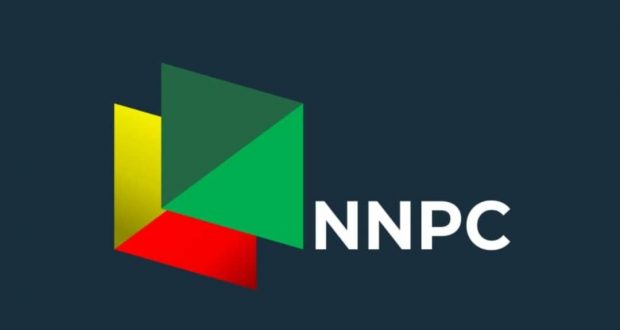The Nigerian National Petroleum Company Limited (NNPCL) has requested an additional N1.19 trillion in subsidy refunds for July 2024, citing exchange rate differentials in Premium Motor Spirit (PMS) importation and joint venture taxes. This request has triggered criticism from state governments and stakeholders, who question the transparency of NNPCL’s accounting practices.
The request was detailed in the Federation Account Allocation Committee (FAAC) Postmortem Sub-Committee report for September 2024. The report highlighted that exchange rate differentials had risen from N4.56 trillion in June 2024 to N5.31 trillion by July 2024 due to fluctuations in foreign exchange rates and unresolved subsidy payments.
A Growing Concern Over Subsidy Costs
The rising cost of subsidy payments continues to strain government revenues. Analysts warn that these payments threaten the fiscal health of the Federation Account and undermine efforts to phase out subsidies.
“The continuous demand for subsidy refunds contradicts the government’s earlier stance that subsidies have been removed,” said a financial analyst, Mary Akintunde. “It raises questions about whether the current framework is sustainable.”
NNPCL’s report to the FAAC included an N1.19 trillion balance brought forward, which accounted for the overall claim of N5.31 trillion. However, the FAAC Sub-Committee expressed concerns over discrepancies, noting that this amount was absent from earlier reports.
Sub-Committee’s Scrutiny
The Sub-Committee pointed out that NNPCL’s inclusion of the N1.19 trillion figure lacked prior documentation.
“As of June 2024, exchange rate differentials stood at N4,558,597,379,030.60. By July, this increased to N5,309,418,715,637.13,” the report noted. “The N1.19 trillion brought forward was not part of earlier FAAC reports and is therefore not recognized by the Sub-Committee.”
During a September meeting, NNPCL clarified that the N1.19 trillion was an actual under-recovery amount, including adjustments for June and July 2024. This figure was used as the opening balance in its ledger.
In response, the Sub-Committee recommended that NNPCL re-submit the figure with full documentation for consideration at the next plenary.
Missing Documentation and Accountability
Further examination revealed gaps in NNPCL’s claims. Minutes from a previous FAAC meeting indicated that, as of June 2024, NNPCL reported an outstanding claim of N4.34 trillion tied to exchange rate differentials. However, essential details such as PMS volumes, pricing, and sales values were missing.
“The lack of detailed records undermines the credibility of these claims,” stated a Federal Commissioner from the Revenue Mobilisation, Allocation, and Fiscal Commission. “Without these details, justifying such significant figures is difficult.”
The Sub-Committee emphasized the need for transparency and directed NNPCL to provide comprehensive data on PMS importation in future reports.
Lingering Subsidy Challenges
Despite the government’s public stance on subsidy removal, the reality suggests otherwise. On May 29, 2023, during his inauguration, President Bola Tinubu declared that “subsidy is gone,” signaling a shift in economic policy. However, international bodies, including the International Monetary Fund and the World Bank, have raised concerns over the government’s reintroduction of fuel subsidies.
In June, a proposed economic stabilization plan revealed that the government planned to spend about N5.4 trillion on subsidies in 2024. NNPCL’s latest demand of N5.31 trillion for under-recovery aligns closely with this estimate, raising further questions about policy consistency.
Between January and June 2023, the Federal Government spent N3.6 trillion on fuel subsidies, significantly exceeding the N2 trillion spent in 2022. The approved Medium-Term Expenditure Framework also highlighted the adverse impact of subsidies on oil revenues.
“Despite recent reforms, petrol subsidies remain a major challenge,” the document stated. “The 2023 final dividend due to the Federation was withheld to settle fuel subsidies.”
Public Backlash Over Rising Fuel Costs
Nigerians have expressed frustration over the government’s handling of fuel pricing. Since May 2023, petrol prices have increased by over 505%, rising from N175 per liter to N1,060 by October 2024.
“The situation is unbearable for ordinary Nigerians,” said Musa Ibrahim, a resident of Abuja. “We were told subsidies were gone, yet prices keep climbing, and the government continues to support these unsustainable costs.”
Calls for Reform and Transparency
Experts argue that the NNPCL and the Federal Government must prioritize accountability and sustainable policies.
“The NNPCL’s claims need to be thoroughly vetted,” said economic analyst Tunde Oladipo. “Transparency is crucial to restoring public trust and ensuring that government resources are used efficiently.”
The FAAC Postmortem Sub-Committee has reiterated its commitment to ensuring accurate reporting and accountability. It urged NNPCL to reconcile discrepancies and provide all relevant data to enable a comprehensive review of its claims.
The Road Ahead
As debates over subsidy payments continue, the government faces mounting pressure to address fiscal challenges while protecting citizens from the burden of rising fuel costs. For many, the resolution lies in transparency and a long-term strategy to reduce reliance on subsidies.
“This is a critical moment for Nigeria,” Oladipo concluded. “The decisions made now will shape the economic future of the nation.”
The outcome of NNPCL’s subsidy request will likely set the tone for the government’s approach to fuel pricing and fiscal management in the coming months.
 Financial Energy Review
Financial Energy Review





